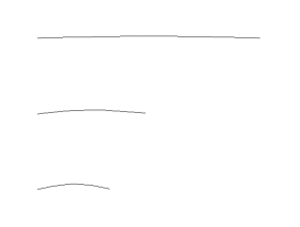Isaac Beeckman facts for kids
Quick facts for kids
Isaac Beeckman
|
|
|---|---|
| Born | 10 December 1588 |
| Died | 19 May 1637 (aged 48) Dordrecht, County of Holland, Dutch Republic
|
| Scientific career | |
| Notable students | René Descartes |
Isaac Beeckman (born December 10, 1588 – died May 19, 1637) was a Dutch thinker and scientist. He made important contributions to science through his studies. He also connected with other leading thinkers of his time. Some people believe he helped start the idea of modern atomism, which is the idea that everything is made of tiny particles.
Contents
Isaac Beeckman's Early Life and Education
Isaac Beeckman was born in Middelburg, Zeeland. His family was very religious and followed the Calvinist faith. They had moved there from the Spanish-controlled Southern Netherlands a few years earlier.
He received a good education in his hometown. Later, he went to Leiden to study theology, literature, and mathematics.
Starting a Business and Further Studies
After his studies, Beeckman could not find work as a minister. This was because his father's ideas clashed with the local church. So, he decided to join his father's candle-making business. He even started his own company in Zierikzee.
While working on improving candle-making, he also worked on other projects. These included building water pipes and observing the weather. In 1616, he sold his business. He then went to study medicine in Caen, where he finished his degree in 1618.
Teaching Career and Family Life
When he returned, Beeckman became an assistant principal in Utrecht. In April 1620, he married Cateline de Cerf, whom he knew from Middelburg. They had seven children together.
From 1620 to 1627, he taught at the Latin school in Rotterdam. A Latin school was a type of high school back then. There, he started a "Collegium Mechanicum," which was like a technical college. From 1627 until he passed away at age 48, he was the principal of the Latin school in Dordrecht.
Beeckman's Connections and Influence
Beeckman had some very influential teachers in Leiden. These included Rudolph Snellius and Simon Stevin. He also taught important people himself. One of his students was Johan de Witt. He was also a teacher and friend to the famous philosopher René Descartes.
Meeting René Descartes
Beeckman met a young Descartes in November 1618 in Breda. Beeckman lived there, and Descartes was a soldier stationed in the city. They reportedly met while looking at a public notice in the marketplace. The notice described a math problem that needed solving. Descartes asked Beeckman to translate the problem from Dutch to French.
In their next meetings, Beeckman got Descartes interested in his ideas about how things work. Beeckman believed that everything was made of tiny particles. He convinced Descartes to use math to study nature. In 1619, Descartes dedicated one of his first writings, called Compendium Musicae, to Beeckman.
Later Interactions with Descartes
When Descartes returned to the Dutch Republic in 1628, Beeckman also shared many of Galileo's ideas with him. However, in 1629, they had an argument. They disagreed about whether Beeckman had helped Descartes with some of his math discoveries.
In October 1630, Descartes wrote a very harsh letter to Beeckman. In it, he said that Beeckman had never influenced him. Despite this and a few other disagreements, they stayed in touch until Beeckman's death in 1637.
Beeckman's Scientific Discoveries and Legacy
Isaac Beeckman did not publish his ideas during his lifetime. However, he influenced many scientists of his time. From the beginning of his studies, he kept a detailed journal. His brother published some of his observations from this journal in 1644. The book was called Mathematico-physicarum meditationum, quaestionum, solutionum centuria. But, it was mostly ignored.
Beeckman's important ideas were not fully known until much later. A science historian named Cornelis de Waard found Beeckman's journal in 1905. He then published it in several books between 1939 and 1953.
Key Scientific Ideas
- Atomic Theory: Beeckman disagreed with the ideas of Aristotle. He developed the idea that all matter is made of tiny particles called atoms. He came up with this idea on his own.
- Inertia: Beeckman was one of the first people to correctly describe inertia. This is the idea that an object will keep moving unless a force stops it.
- Vibrating Strings: He showed that the main sound (fundamental frequency) made by a vibrating string depends on its length. The shorter the string, the higher the sound.
- Air Pressure and Pumps: When studying how pumps work, he correctly said that air pressure makes them work. This was different from the popular idea at the time, which was called "horror vacui." This idea suggested that nature "hates" empty spaces.
Influence on Other Scientists
During his time, Beeckman was considered one of the most educated people in Europe. For example, he greatly impressed Mersenne, even though they had different religious views. He also impressed Pierre Gassendi. Beeckman apparently introduced Gassendi to the ideas of Epicurus, which included atomism. Gassendi even wrote in a letter in 1629 that Beeckman was the greatest philosopher he had ever met.
See also
 In Spanish: Isaac Beeckman para niños
In Spanish: Isaac Beeckman para niños
 | Chris Smalls |
 | Fred Hampton |
 | Ralph Abernathy |


